On the March 20, 2025, Tsinghua University President Professor Li Luming met with Joseph E. Stiglitz, Nobel Laureate in Economic Sciences (2001), Professor at Columbia University, Honorary Professor at Tsinghua University, member of the School of Public Policy and Management, Tsinghua University (SPPM) Global Advisory Board, and member of International Advisory Committee of the Institute of Sustainable Development Goals, Tsinghua University (TUSDG).
Li Luming expressed his gratitude to Stiglitz for his many previous visits to Tsinghua University and his contributions to advancing academic exchanges between the two sides, and introduced the progress of Tsinghua University's AI-enabled education and teaching and disciplinary research. And he looked forward to further strengthening cooperation in faculty and student exchanges, scientific research and other aspects in the future, and jointly contributing to the promotion of high-quality development of higher education.
Professor Stiglitz expressed his pleasure to come to Tsinghua University again and communicate with teachers and students. And He hoped to deepen the academic exchanges and cooperation with Tsinghua University in the future and continue to play an active role in promoting the sustainable development of science and education.
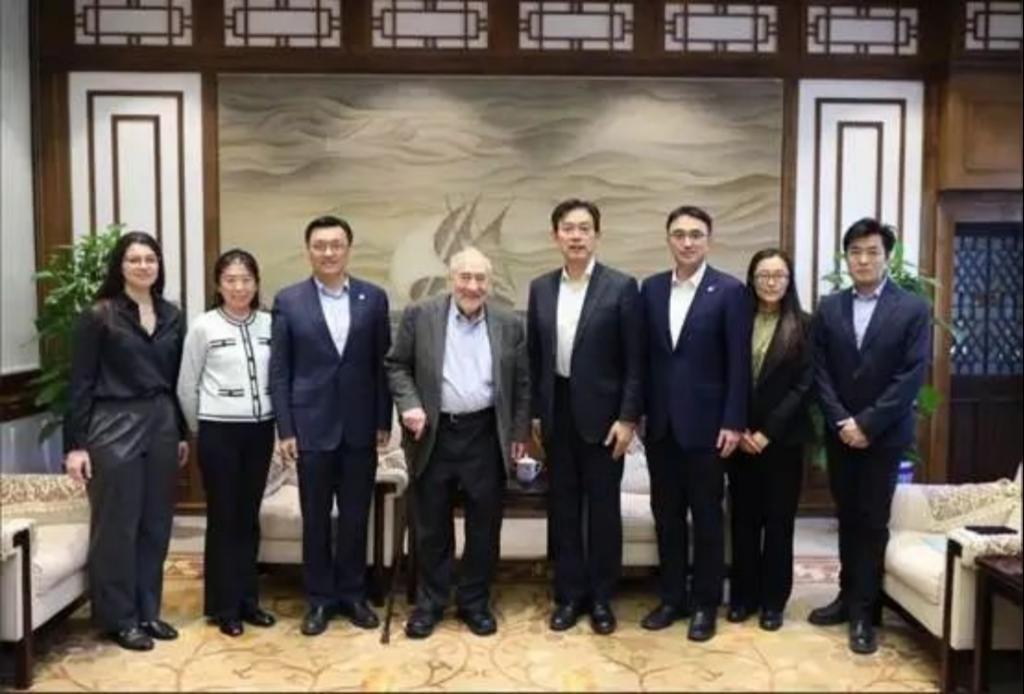
Group Photo of the Meeting
Zhu Xufeng, Dean & Professor of SPPM, and Executive Director of TUSDG, Ji Mo, Chief Economist for Greater China at AllianceBernstein, Caroline Feehan, Executive Assistant to Professor Stiglitz, Jiang Yongbin, Deputy Director of the Office of International Affairs, Tsinghua University, Zhong Wei, Associate Dean & Associate Professor of SPPM and so on attended the meeting.
After the meeting, Stiglitz visited SPPM and gave a lecture entitled Resurgence of Industrial Policy and the New Protectionism in the Auditorium Hall of the SPPM. The lecture is in the series of 2025 GAB-Student Dialogue and as the ‘Meet SDGs’ High-End Forum No. 10. The opening remarks were delivered by Xue Lan, Distinguished Professor of Arts, Humanities and Social Sciences at Tsinghua University, Dean of the Schwarzman College, and Director of TUSDG. Ji Mo, Caroline Feehan, Cui Zhiyuan, Professor of SPPM, Zhong Wei, Associate Dean & Associate Professor of SPPM, and Zhang Penglong, Associate Professor of SPPM and other more than 100 students and faculty members from both inside and outside the school attended the activity. And the activity was hosted by Zhu Xufeng.

Opening Remarks by Xue Lan
In his opening speech, Xue Lan praised Professor Stiglitz for his groundbreaking contributions to global economic governance, social equity, and sustainable development. As one of the most influential economists of our time, Professor Stiglitz has maintained a long-standing friendship with Tsinghua University and SPPM. His achievements in academic theory are matched by his success in applying economic principles to real-world policy during his service as Chief Economist of the World Bank and Chair of the Council of Economic Advisers of the President of United States, significantly advancing global sustainable development and equity.
Xue Lan emphasized that Professor Stiglitz has long been an active supporter of China’s reform and opening-up. He played a pivotal role in advocating for China’s accession to the World Trade Organization (WTO) as a developing country—efforts that earned him high recognition from both the Chinese government and academic community. Through continued academic engagement and policy advising, he has contributed to the internationalization of SPPM and the development of global public policy research.
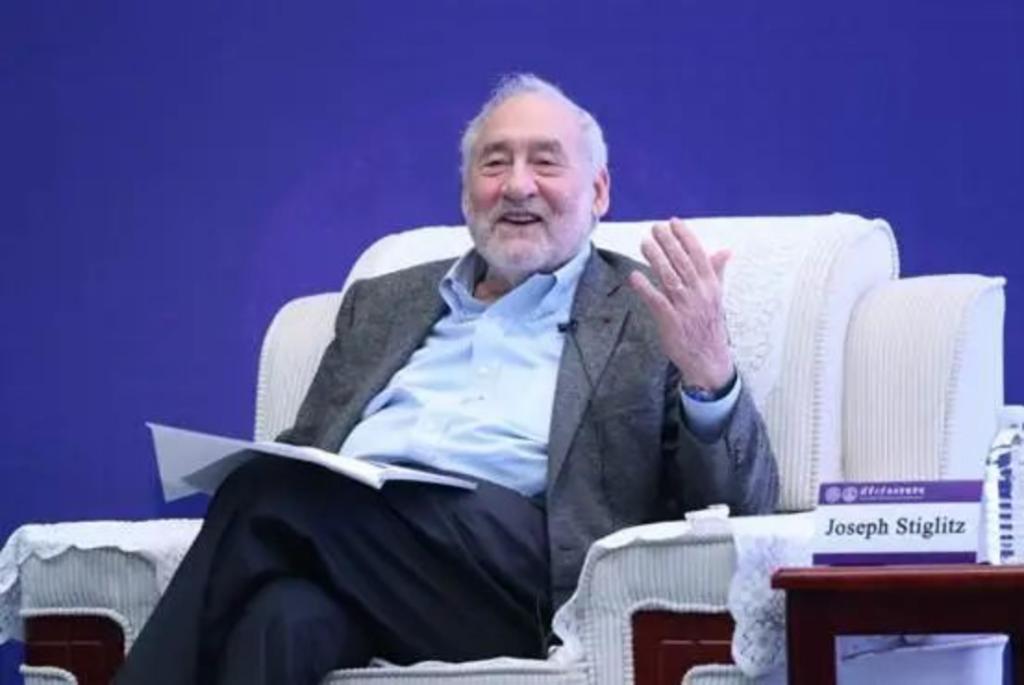
Keynote Speech by Professor Stiglitz
In his speech, Professor Stiglitz offered a deep analysis of the many challenges facing today’s global economic governance. He began by reviewing the post-WWII rule-based international trade system, pointing out that this framework is undergoing a significant transformation. The previously dominant ideals of free trade and neoliberal economic theory have come under growing pressure, having failed to resolve inequalities both between nations and within societies. Amid crises such as COVID-19, climate change, and geopolitical conflict, countries are increasingly returning to industrial policy to ensure economic security and technological sovereignty.
Discussing flaws in the current global economic governance system, he noted that developed countries have used trade rules over recent decades to restrict industrial upgrading in developing countries—creating a pattern of inequality akin to “new colonialism.” With the rise of new protectionism, the risk of global economic fragmentation is intensifying, as nations impose trade barriers and export controls to protect domestic industries and technologies. He warned that without effective international coordination, this trend will severely hinder global growth and shared prosperity.
He further argued that the resurgence of industrial policy goes beyond traditional manufacturing to encompass innovation and R&D, green transitions, and strengthening economic resilience. Given the complexity of global transformation, especially in developed countries, he called for a reassessment of globalization’s downsides and stronger efforts to promote technology transfer and sharing with the Global South. He urged the international community to build a new, and more equal and inclusive trade governance framework that balances efficiency with equity, and economic growth with sustainable development.
In closing, Professor Stiglitz emphasized that the future of global economic governance depends on deep collaboration among governments, universities, and international organizations. As key platforms for research and innovation, universities have a crucial role to play—not only in advancing knowledge but also in cultivating a new generation of global leaders. He expressed hope that international cooperation would strengthen and lead us into a more just, sustainable, and inclusive era of global economic governance.
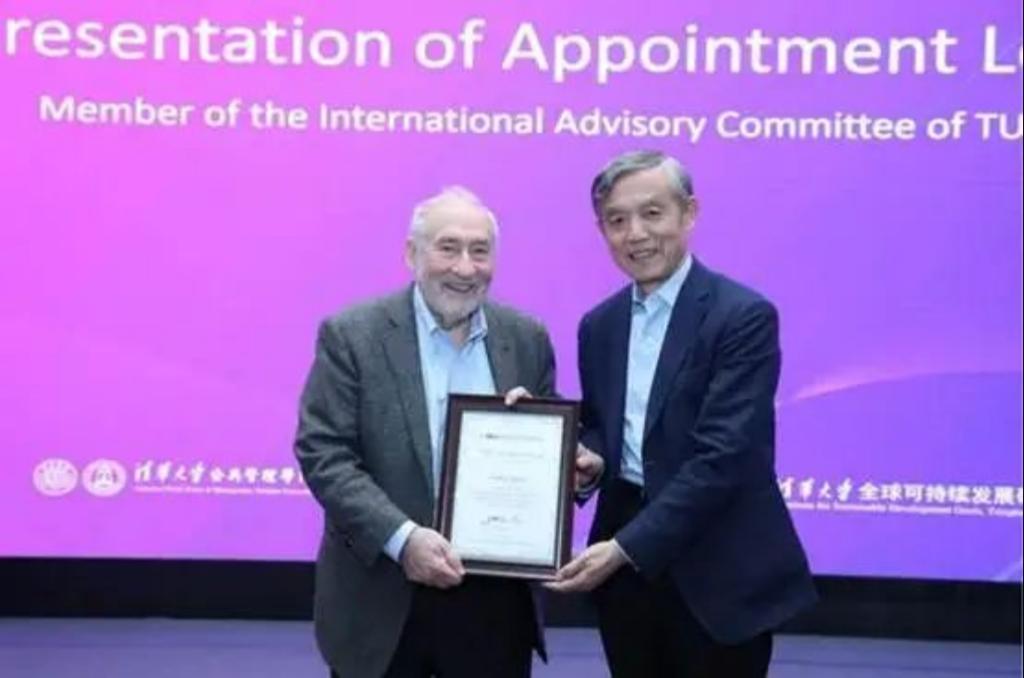
Xue Lan Presented Professor Stiglitz with the Appointment Letter
In 2018, Professor Stiglitz accepted the invitation from TUSDG to serve as a member of its International Advisory Committee. At this event, Xue Lan officially presented him with the appointment letter. Together, the two parties reaffirmed their commitment to advancing research and practical cooperation in global sustainable development.
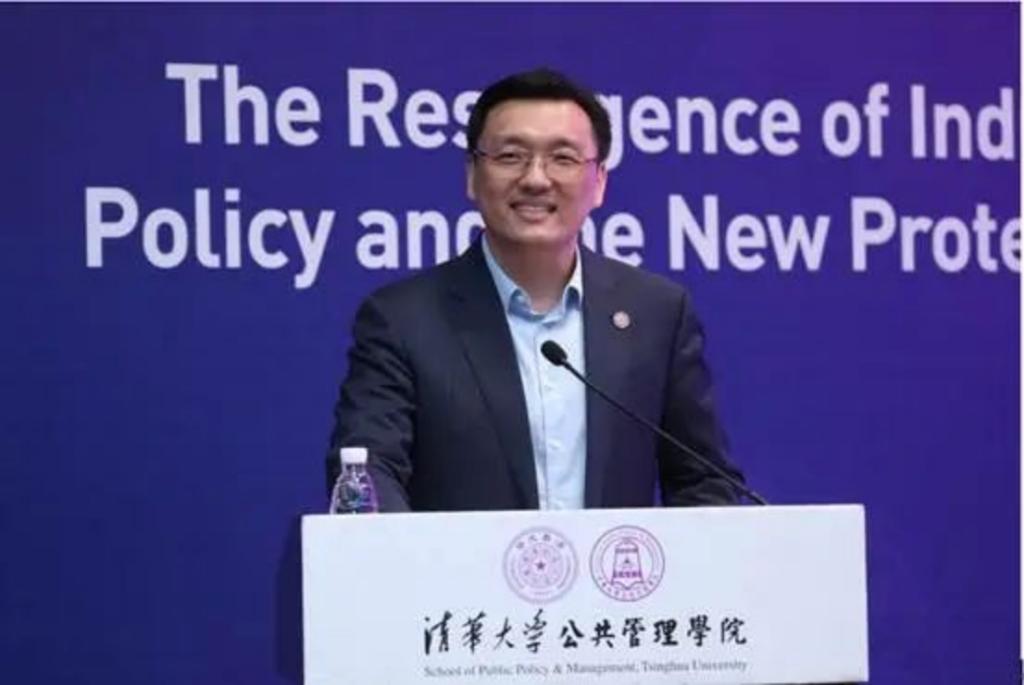
Moderated by Zhu Xufeng
The event concluded with a lively Q&A session, during which Professor Stiglitz engaged in vibrant discussion with faculty and students, including Cui Zhiyuan, Zhang Penglong, and Zhong Wei. Topics included the theory-practice gap in industrial policy, green trade agreements, technology sharing, challenges posed by artificial intelligence, and policy interventions. The discussion was dynamic and intellectually enriching.
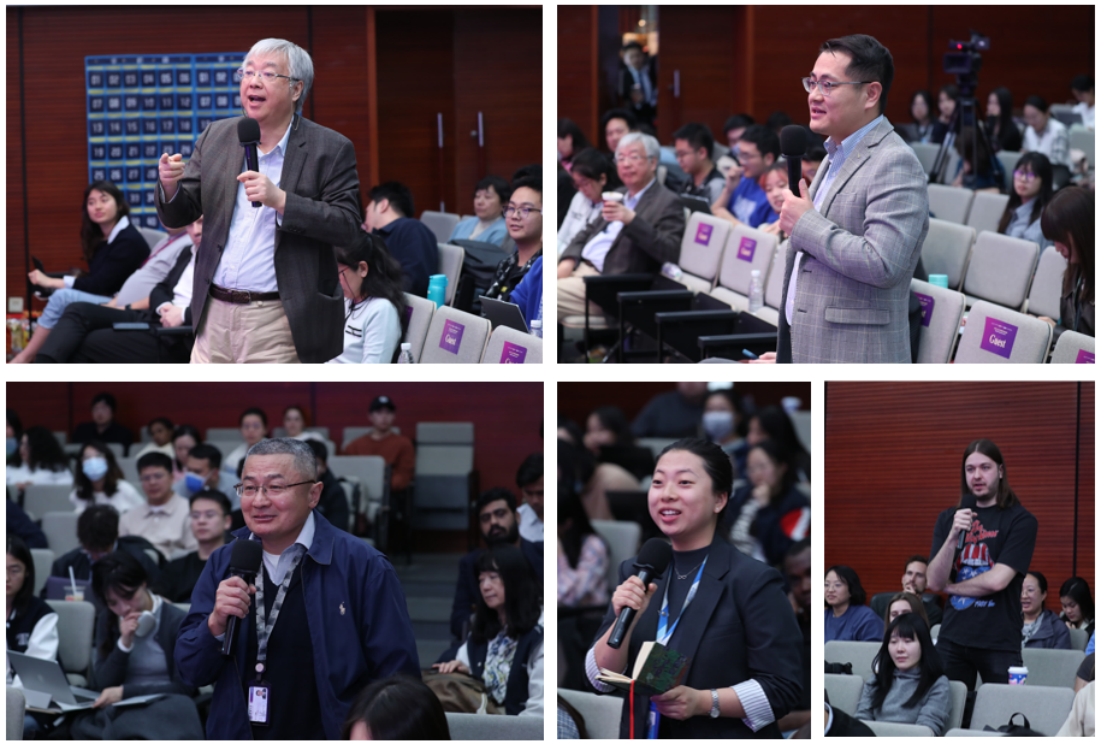
Cui Zhiyuan (top left), Zhang Penglong (top right) and other participating teachers and students in the Q&A session
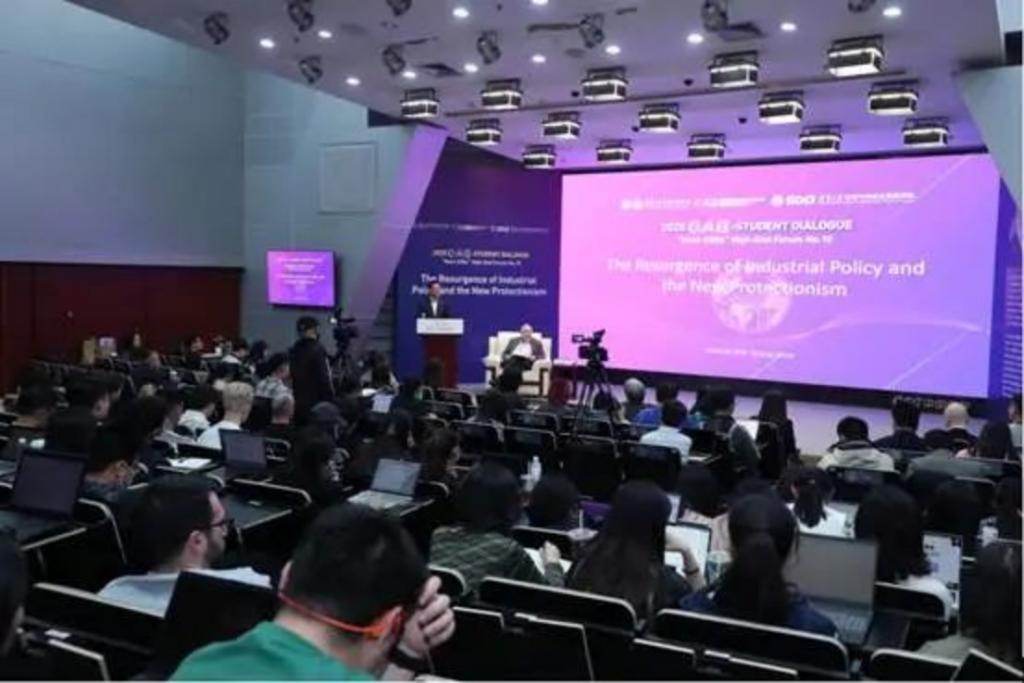
Activity Scene

